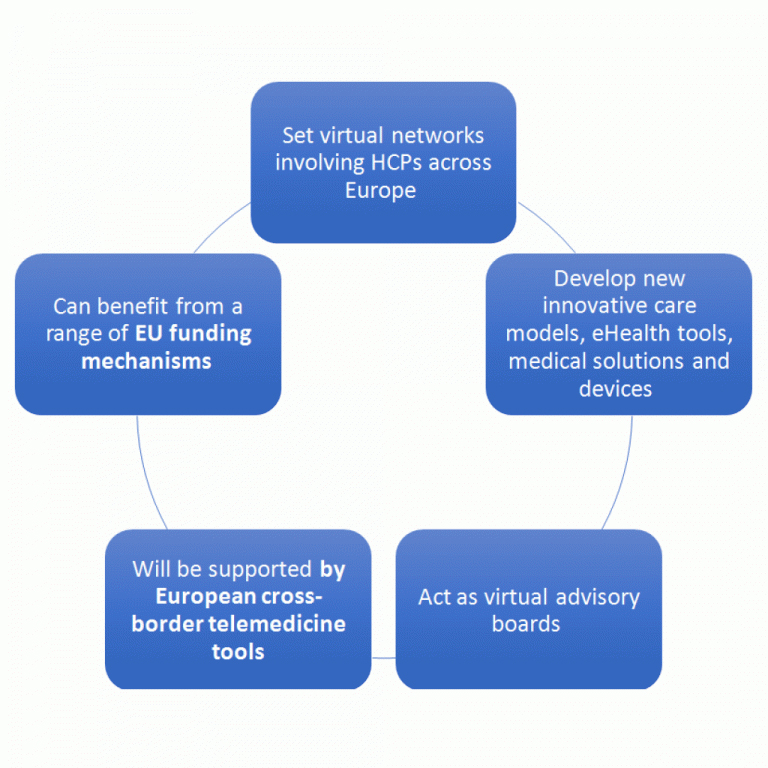RITA’S VISION
Every patient with a rare immunodeficiency, autoinflammatory or autoimmune disorder can live their life to its full potential – regardless of nationality or residence.
RITA’S MISSION
- To provide state of the art comprehensive clinical care for children and adults with rare Immunodeficiency, Auto-inflammatory and Auto-Immune disorders
- To ensure every patient across Europe has equal access to excellent expertise and care
- To establish sustainable alliances with European centres
- To improve diagnosis and therapy for patients with rare immunodeficiency, auto-inflammatory and auto-immune disorders
- To train future leaders in the field, securing sustainability in an international perspective
- Provide a platform for research
GOALS & OBJECTIVES
The RITA network aims at harmonizing diagnostic and therapeutic guidelines for all affected patients, independent of national and ethnic origins, resulting in access to diagnostic tests and therapies such as biologic therapies, Immunoglobulin replacement, stem cell transplantation, and gene therapy.
A strength of RITA is that it is built on existing scientific networks for PID, SAID, vasculitis and pediatric rheumatic diseases, with more than 100 potential centres involved to varying degrees across the EU Member States. These networks are represented in the governance structure with the largest and most experienced centres forming the core group of RITA members. Our network will bring up the weakest countries to the level of the highest and thus contributes to the reduction of inequalities within EU Member States, one of the main goals of EU cohesion policy. With regard to drug therapies we will continue our efforts to ensure implementation of internationally accepted recommendations and will foster the availability of drugs mentioned in our recommendations in all EU member states.
RITA members believe that, by improving understanding and awareness, diagnosis of these diseases, facilitating advances in treatment and educating physicians about these diseases, will ensure that every patient with a defective immune system will benefit from clinical and scientific knowledge.
SHARE KNOWLEDGE AND EXPERTISE
-Realise the potential of European cooperation regarding highly specialised healthcare for patients and for healthcare systems by exploiting innovations in medical science and health technologies.
-Contribute to the pooling of knowledge regarding sickness prevention, for example by developing and advocating newborn screening for rare immune disorders.
-Facilitate mobility of expertise, virtually or physically, to develop, share and spread information, knowledge and best practice and to foster developments in the diagnosis and treatment of rare diseases, both within and outside the European Reference Networks.
HELP TREATING PATIENTS
RITA patient pathways and tools to support diagnostics and healthcare provision will raise awareness amongst patients, health professionals and healthcare payers of the possibilities for referral of RITA patients to other Member States for diagnosis and treatments (offered by Regulation (EC) No 883/2004). This will encourage equity of healthcare provision for rare disease patients regardless of home Member State.
-Facilitate improvements in diagnosis and the delivery of high-quality, accessible and cost- effective healthcare for all patients with a medical condition requiring a particular concentration of expertise in medical domains where expertise is rare.
-Reinforce research, epidemiological surveillance like registries and provide training for healthcare professionals.
-Encourage the development of quality and safety benchmarks and help develop and spread best practice within and outside the European Reference Network.
ENSURE THE AVAILABILITY OF TREATMENT FACILITIES WHERE NECESSARY
Specific benefits and impact from RITA-ERN activities include more cost-effective care delivery and dissemination of cutting edge expertise and the use of e-Health tools and education and will allow equitable access to expert advice and diagnostics, reduce the time to a correct diagnosis, thus lowering healthcare costs of unnecessary or incorrect treatments. The ERN virtual consultation and patient review systems should ensure that the best and most cost-effective treatments can be implemented quickly for patients, largely removing the need for cross-border travel.
-Maximise the cost-effective use of resources by concentrating them where appropriate.
-Help Member States with an insufficient number of patients with a particular medical condition, or lacking technology or expertise to provide highly specialised services of high quality.
RITA’S WAYS TO REACH THESE OBJECTIVES
RITA will facilitate accelerated development of innovative diagnostic and treatment modalities. For example, a gain of function mutation in certain key intracellular signalling molecules such as STAT1, STAT3 and PI3K have been shown to cause diseases with features of frequent infection, autoimmunity and autoinflammation. Similarly, the identification of the intracellular molecular pathways leading to severe inflammation in SAID represents an extraordinary resource for the identification of possible novel specific therapeutic targets aimed to the regulation of the inflammatory response. We will harness such observations for experimental and therapeutic studies aiming at re-programming the immune system. A better molecular understanding promises targeted correction of such specific immune deficits and augmentation of immunoregulation pathways in a controlled fashion.
To ensure that such newly recognised conditions are evaluated and treated effectively using scientifically validated principles we will:
– Link pre-existing registries (i.e. ESID and Eurofever) to ensure the identification of all patients with immune-mediated conditions.
– Establish a task force with molecular genetics and informatics expertise to ensure the correct codification of quality control on NGS technology and genotype/phenotype correlations.
– Establish a common tool for pharmacovigilance in these rare conditions.
– Convene a common task force for the correct use and monitoring of biologic treatments in immune mediated diseases.
– Bring together prospective outcome studies of stem cell and gene therapy for rare immune disorders.
– Create an operational collaboration between different patient associations, allowing them to learn from each other and facilitating greater involvement in network activity.
– Bring together paediatric and adult specialists across the 3 themes, creating an excellent opportunity to improve and develop transitional care for adolescent patients.
RITA’S KEY APPROCHES

Gradually include all centres endorsed by national authorities and who currently participate in international activities in our area of expertise:
- ambition to increase, to fulfil the mission to grow
- every other year we will invite new members and will define this in a detailed strategy
- criteria will be readopted according to progress in science, medicine and standards of care
